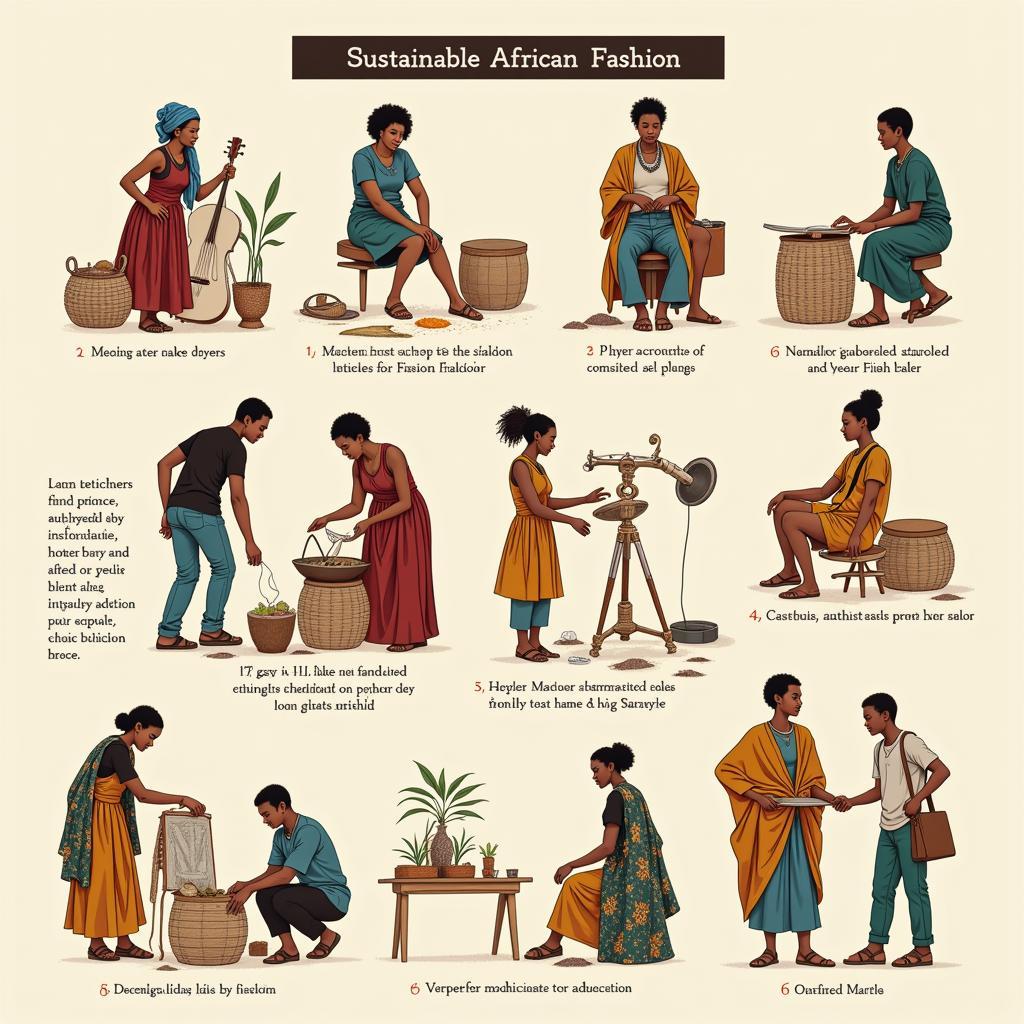Understanding the African Crop Science Journal Impact Factor
The African Crop Science Journal Impact Factor is a metric that reflects the journal’s influence and visibility within the scientific community. This article delves into the significance of impact factors, particularly for journals focusing on agriculture and crop science in Africa. We’ll explore how these metrics are calculated, why they matter, and what they reveal about the state of agricultural research on the continent.
 Researchers Analyzing Data in African Crop Science Journal
Researchers Analyzing Data in African Crop Science Journal
What Does an Impact Factor Tell Us?
In essence, the impact factor measures how frequently articles published in a specific journal are cited by other researchers in their own work over a defined period, usually two years. A higher impact factor generally suggests that the journal’s articles are considered more influential and valuable within the research community.
For journals like the African Journal of Biotechnology Vol 1, which focuses on a specific geographic region and subject area, the impact factor offers insights into the visibility and reach of research coming out of Africa. It can highlight the contributions of African scientists to the global knowledge base in crop science and related disciplines.
Why the African Crop Science Journal Impact Factor Matters
The impact factor of the African Crop Science Journal holds particular significance for several reasons:
- Visibility of African Research: A higher impact factor can attract more attention to research conducted in Africa, giving a platform to African scientists and their findings on a global stage.
- Funding Opportunities: Funding bodies often consider impact factors when evaluating research proposals. A strong impact factor can bolster the case for increased investment in agricultural research in Africa.
- Collaboration and Knowledge Sharing: A widely cited journal fosters greater collaboration among researchers, both within Africa and internationally. This exchange of knowledge is crucial for advancing agricultural practices and addressing food security challenges.
 African Farmers Celebrating a Bountiful Harvest
African Farmers Celebrating a Bountiful Harvest
Factors Influencing the Impact Factor
Several factors can influence the impact factor of a scientific journal, including:
- Journal Scope and Reputation: Journals with a well-defined scope and a strong reputation for publishing high-quality research tend to attract more citations.
- International Collaboration: Articles resulting from international collaborations often receive wider attention and citations.
- Accessibility: Open-access journals, which make research freely available online, often see higher citation rates.
- Citation Practices: Variations in citation practices across different research fields can influence impact factors.
Beyond the Numbers: A Holistic View
While the impact factor offers valuable insights, it’s crucial to remember that it’s just one metric among many. Evaluating the quality and impact of research requires a more comprehensive approach. Other factors to consider include:
- Research Relevance: Does the research address critical issues in crop science and agriculture, particularly those relevant to the African context?
- Methodological Rigor: Are the research methods sound and the findings reliable?
- Practical Applications: Does the research have the potential to translate into practical solutions for farmers and communities?
 Modern Technology in African Agriculture
Modern Technology in African Agriculture
The Future of African Crop Science Research
As Africa faces growing challenges related to food security and climate change, the role of agricultural research becomes increasingly vital. A thriving and influential African Crop Science Journal can play a pivotal role in:
- Promoting Sustainable Practices: Sharing knowledge and best practices for sustainable agriculture and resource management.
- Enhancing Food Security: Developing and disseminating innovative solutions to increase crop yields and improve food production.
- Empowering Local Communities: Ensuring that research findings reach farmers and communities to support their livelihoods.
Conclusion
The African Crop Science Journal Impact Factor serves as an indicator of the growing influence and importance of agricultural research in Africa. By supporting journals like this and promoting high-quality research, we can contribute to a more sustainable and food-secure future for the continent.
FAQ
1. What is the current impact factor of the African Crop Science Journal?
The impact factor of journals can fluctuate from year to year. To find the most up-to-date information, it’s best to consult the Journal Citation Reports or the journal’s website directly.
2. How can I submit my research to the African Crop Science Journal?
Information on submission guidelines, author instructions, and the peer-review process can typically be found on the journal’s website.
3. Are there other journals focusing on African agricultural research?
Yes, several other reputable journals specialize in agricultural research relevant to Africa. Some examples include the African Journal of Microbiology Research and the African Journal of Microbiology.
4. How can I access articles published in the African Crop Science Journal?
The journal’s accessibility depends on its publication model. Some journals are open access, while others require a subscription or payment for individual articles.
5. How can I learn more about supporting agricultural research in Africa?
Several organizations and initiatives focus on supporting agricultural research and development in Africa. You can find more information through online resources, research institutions, and international development agencies.
Need More Information?
For further assistance and support, feel free to reach out to us:
Phone: +255768904061
Email: [email protected]
Address: Mbarali DC Mawindi, Kangaga, Tanzania
We are available 24/7 to answer your queries and provide guidance. You may also want to read more about related topics on our website, such as the African Journal of Biotechnology short form and the African Entomology impact factor.


